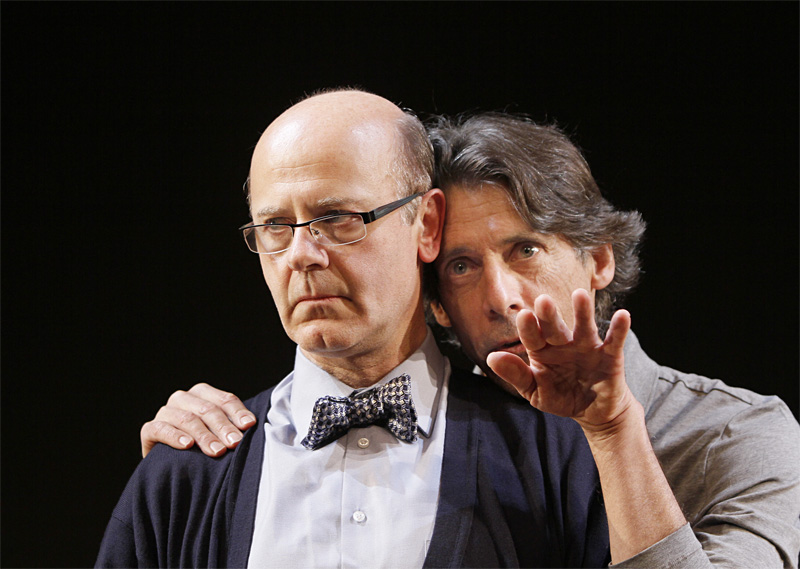Variously likened to “lovemaking,” “a marriage, but with more fidelity,” and “swallowing Drano,” being a member of a professional string quartet has its heady thrills, bitter ego-bashings, and workaday tedium—at least according to Michael Hollinger’s highly entertaining 2006 play.
As the show opens, three members of the famed (and fictional) Lazara Quartet are auditioning a nervous young woman named Grace (Chelsey Rives, who played another nervous young woman last year in Boom). Grace is being considered to fill the gaping hole left by the disappearance of the group’s original violist, Dorian, whose tormented, bipolar, drug-addled genius was both the quartet’s prized asset and its Achilles heel.
Elliot (Allen Fitzpatrick), the group’s leader and first violinist, runs the interview with priggish, conservative pragmatism, but even he is bowled over by Grace’s raw talent. She’s in—but with the knowledge of all parties that a woman will inevitably change the group’s balance, such as it is.
As the play shifts between an almost-present (2007)—during which the group prepares for a televised concert in George Bush’s White House—and earlier events, the main philosophical cleavage in the group soon becomes clear: Dorian (played by Todd Jefferson Moore) exalts passion, heat, “going all the way,” and losing himself in art, where Elliot relishes reason, restraint, and identity. To make things more complicated, the two are lovers.
A wealthy benefactor’s donation of two priceless period instruments—”real Lazaras”—intensifies the group’s power struggle. One member’s health crisis, the lure of seductively secure orchestra jobs, and a budding romance between Grace and second violinist Alan further contour the rough road to the White House.
One of the many delights of the swirling, lyrical one-act is how much of the dialogue feels like music. Lines lilt and flutter, overlap, call, answer, echo, and entwine like instrumental parts. In verbal solos, characters address the audience directly about music, their personal histories, and the history of the quartet. Another pleasure is the music itself, mostly Beethoven with a bit of Bach and Bartok, recorded specifically for the play by the Vertigo String Quartet. Though the actors aren’t playing their instruments, they mimic the movements well (minus the fingering) and the notes do appear to flow through their souls, if not their digits.
Hollinger was trained as a violist at Oberlin Conservatory prior to becoming a dramaturg, literary manager, and, ultimately, playwright. His depiction of smart individuals who spend thousands of hours together in subjective collaboration feels authentic. Rives’ nerdy, awkward Grace probably benefited from the actress’ training among hyper-intellects at Harvard (she brought a similarly satisfying nerd factor to Boom). Charles Leggett lends cellist Carl a homey, blue-collar solidity; he’s a reality check and a pleasing foil to brittle highbrow Elliot and febrile highbrow Dorian. Shawn Belyea’s happy-go-lucky Alan is the everyman narrator, the easygoing lubricant in a cranky machine.
In each of the story’s four locations, the set consists simply of a stone-motif backdrop covered with blurry, hieroglyphic-like musical notes. This abstract allusion to antiquity suggests the eternal nature of great music, while the short scenes and modern dialogue are purely of the moment. The climax comes late and unexpectedly; however—as with the best musical codas—it’s almost impossible to imagine another outcome.








